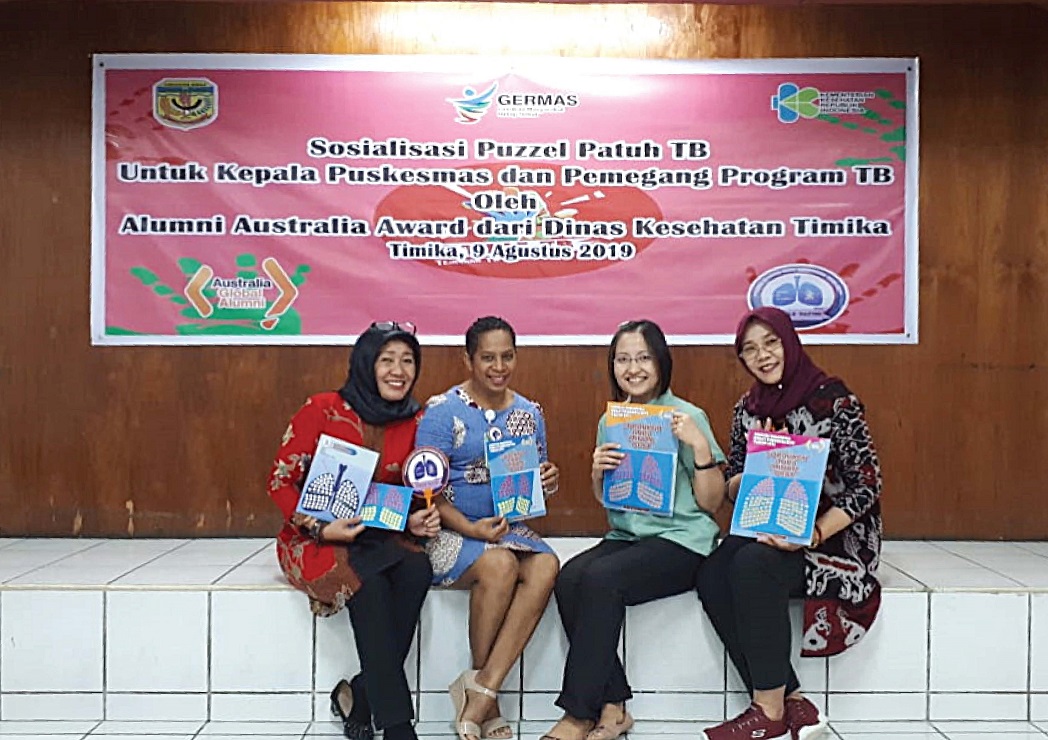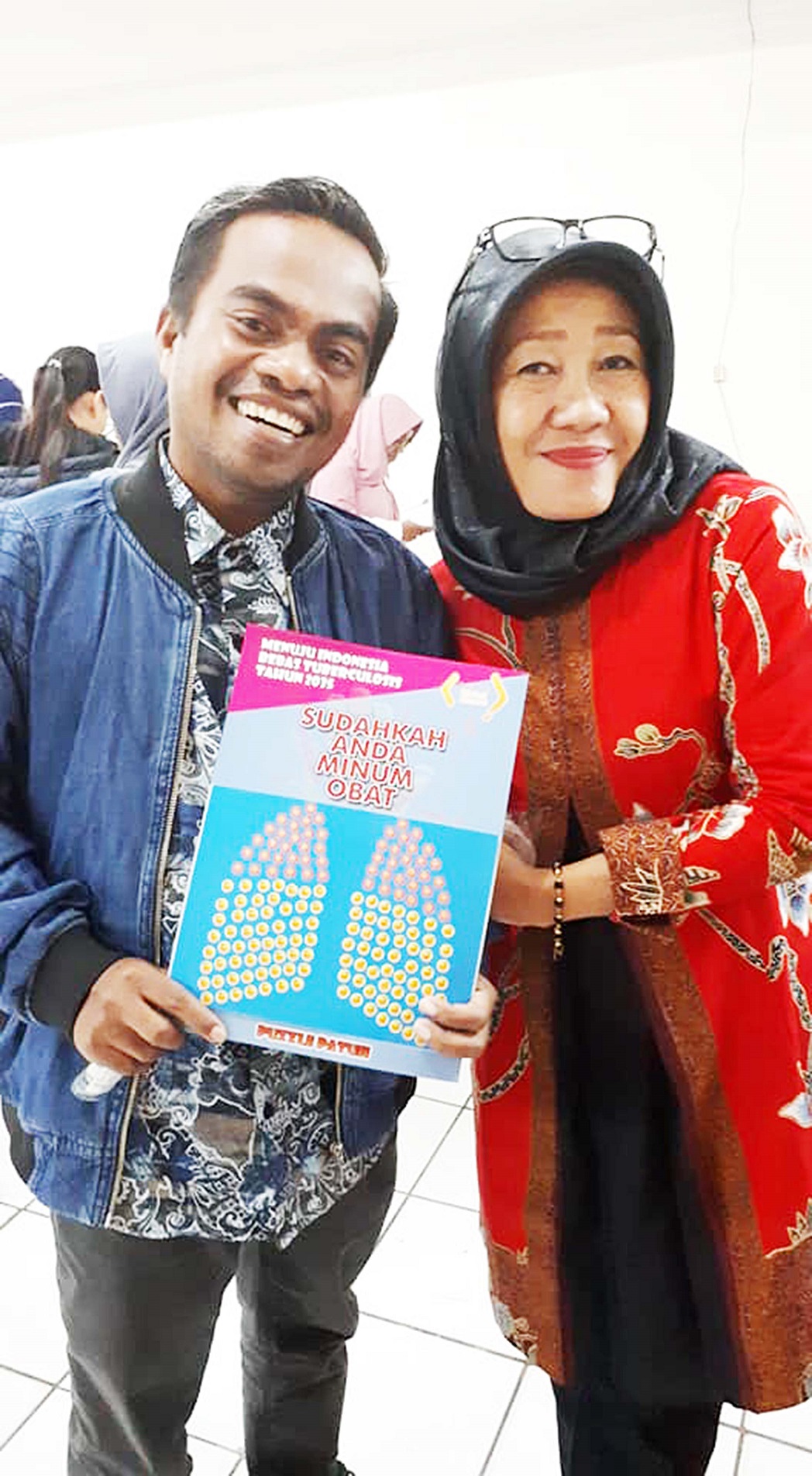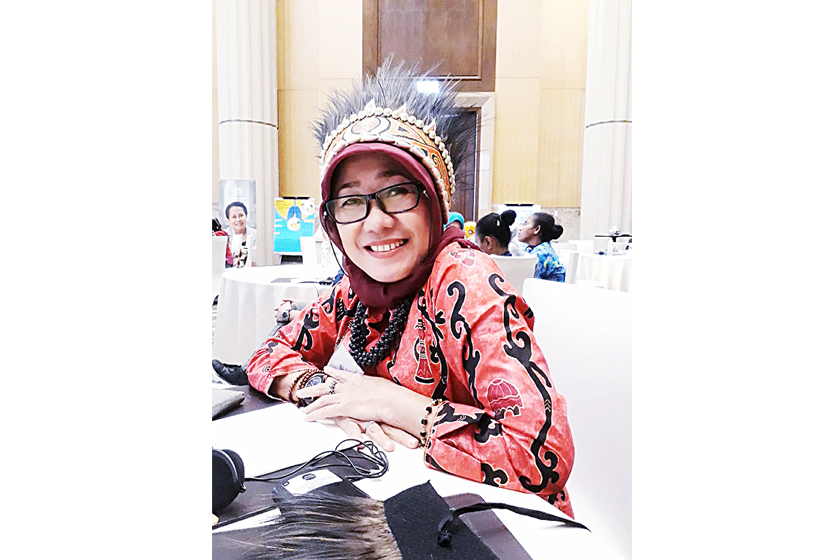In Papua and West Papua, a puzzle card is helping tuberculosis patients remember to take their medication, a habit that plays a very important role in ensuring patient recovery, preventing re-occurrence, and eradicating tuberculosis.
With funding from the Australian Government’s Alumni Grant Scheme, the Puzzle Patuh TB (Tuberculosis Adherence Puzzle) program has evolved from a pilot program at two community health centres, to a scheme reaching 30 community health centres and facilities in Papua and West Papua, and many more looking to adopt it.
The idea for the puzzle cards was born in a brainstorming session at the Tuberculosis: Prevention and Eradication Australia Awards short course run by the Menzies School of Health Research and the Burnet Institute and funded by the Australian Government in 2018.
Senyorita Rosliana, Vice Supervisor and Person in Charge of the Tuberculosis Program at the Jayapura Regency Health Office; Tri Ratnawati, Head of Disease Prevention and Control at the Kaimana Regency Health Office; Siska Kristina Sari, a doctor at Mitra Masyarakat Hospital; and Cisilia Fairyo, secretary at the same hospital; were exchanging stories of their experiences in the field when inspiration struck.
Senyorita, who has fought for the eradication of tuberculosis since 1988, vividly recalled the conversation. They had been discussing a patient who had asked why their lung x-ray prior to medication showed white spots, whereas the one after medication was darker. The patient did not know that the white spots were cavities caused by infection, and that the darker x-ray denoted favourable progress.
“We then realised how much a visual aid would help the patient’s understanding of the disease, and help them track their medication intake,” Senyorita said.
The four health experts designed a colourful illustration of a set of lungs, with blank spots corresponding to the dose and frequency of medication. For each dose of medication, a patient was given a sticker to “plug” the holes in the illustration. On completion of their medication regiment, the puzzle card would show a set of lungs fully covered by stickers. The card also incorporated inspirational quotes in the local language. The team also designed a smaller card to appeal to children with tuberculosis.
The Alumni Grant Scheme provided funding for workshops to train health staff in the regencies of Kaimana, Sarmi, Mimika, and Jayapura, and also the printing of the puzzle cards.
Senyorita explained that a lack of awareness has contributed to patients believing they are cured once they have become asymptomatic. They then stop taking their medication before the 6-8 months typically needed to complete tuberculosis treatment.
These “Lost to Follow-Up” (or LFU) patients then unknowingly infect others around them. Many communities still practice the custom of living together in one large house, with as many as 10 to 20 extended family members. In more traditional communities, people chew food before giving it to their babies. A patient who stops taking their medication will severely increase the risk of infecting others.
“According to the Integrated Tuberculosis Information System application, there were 3620 tuberculosis cases in Papua and 3473 cases in West Papua in 2017, with LFU accounting for 25.9% of patients under medication in Papua, with 19% in the Jayapura Regency,” Senyorita said, while also explaining that because of the long term nature of tuberculosis medication, newer conclusive data might not be available yet.
“We need to lower the number of LFU patients to stop the cycle of tuberculosis infection,” said Senyorita.
The stickers proved to be a hit among the communities. “Some even refuse to take the cards home, afraid that they will lose it or ruin it. They leave the cards at the community health centers and health facilities for safekeeping, coming in regularly for their medication,” Senyorita said.
“The sticker puzzle card has become a badge of honour for those who’ve completed their medication, with former patients showing them off proudly to their friends and relatives, which encourages others to do the same,” she added with a smile.
In Jayapura, almost 95% of those who participated in the first round of the program completed their puzzles. In the second round, almost 100% of participating patients completed their medication. In Mimika, all of the patients who participated in the Tuberculosis Adherence Puzzle completed their medication.
The health staff, too, found the puzzle cards helpful as a visual aid when explaining the disease and the importance of taking medications.
The information sessions for health staff wanting to implement the program attracted 55 men and 106 women, far exceeding the targeted number of 50 men and 60 women.
“In West Papua, the fact that we were Australian alumni garnered such an enthusiastic response from the local health staff,” Senyorita said.
The support of the local government also played a key role in the success of the program. The head of one health office instructed all of its staff to attend the information session of the Tuberculosis Puzzle Adherence. Other regencies printed extra puzzle cards to reach more patients, with Jayapura Regency alone allocating budget to print 1000 puzzle cards in 2020.
The team is especially proud that after presenting the program at a Ministry of Health policy briefing, the regional government is looking to replicate the Tuberculosis Adherence Puzzle across regions with similar tuberculosis mapping: regions that are still trying to reach the national target of less than 10% population with tuberculosis, regions with high numbers of LFUs, and whose communities need visual aids to raise awareness.




 Stickers helping to solve the tuberculosis puzzle in Papua and West Papua
Stickers helping to solve the tuberculosis puzzle in Papua and West Papua
